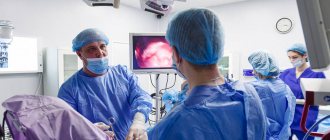An oncologist is a doctor who specializes in diagnosing and treating cancer. Once a diagnosis is made, the oncologist's role is to explain and stage the patient's disease, discuss various treatment options, recommend the best course of treatment, provide optimal care, and improve the patient's quality of life, both through curative therapy and palliative care to treat pain and symptoms. .
There are different types of cancer that affect different parts of the body, for example: breast, prostate, lungs, blood cells (leukemia) or other organs, in principle, cancer can affect any organ, they behave differently, are different classes and cell types, respond differently to treatment, and each disease has a different set of effective treatment regimens.
This necessitates the need for different specialties of oncologists. However, cancer care is a multidisciplinary approach and consists of a team of specialists who help treat the patient.
Why do you need to consult an oncologist?
The content of the article
An oncologist is a general specialist whose competence includes tumors of a benign or malignant nature that affect any organs, body systems or human skin. The specialist is engaged in the prevention, diagnosis and treatment of precancerous diseases, melanomas and cancer itself.
The danger of the oncological process lies in the fact that in this case the cells of the patient’s own body pose a mortal threat to the patient. For one reason or another, certain cellular structures begin to divide and grow uncontrollably and chaotically, forming a new growth. This process is called malignant in cases where, in addition to rapid growth and damage to surrounding tissues, tumor cells spread throughout the patient’s body through the blood and lymph flow, metastasizing to healthy organs and systems. The result of such a journey through the human body is numerous oncological lesions that cannot be treated.
Oncology can not always be considered the final verdict for the patient, because modern medicine successfully treats cancer detected in the early stages of development. In this regard, early detection of the oncological process in the patient’s body is today considered a priority task for oncologists around the world.
Specialists
CDC on the street Red Textile Worker
Gorbunova Ksenia Vladimirovna
oncologist
Skryabina Elena Alekseevna
oncologist
Baeva Marina Vladimirovna
oncologist
Buevich Natalya Nikolaevna
oncologist
Borisov Pavel Sergeevich
urologist, oncologist
Yakubenko Igor Evgenievich
oncologist
CDC in Kupchino
Abdukerimova Angela Bukhsaevna
oncologist
Levin Dmitry Yurievich
oncologist, methodologist
Types and symptoms of oncological processes
A malignant tumor can form in almost any part of the human body, affecting both internal and external organs. The danger of this process also lies in the fact that for a long time oncology does not make itself felt, because the body initially perceives the growth and division of its own cells, even abnormal ones, as a manifestation of the norm.
Symptoms usually appear only at the moment when the tumor reaches an impressive size and exerts a compressive effect on the surrounding tissues. Unfortunately, it is already too late to treat oncology during this period. In order not to miss signs of the onset of a malignant process in the body, doctors recommend paying special attention to the appearance of the following symptoms:
- sensations of discomfort and moderate pain in various parts of the body - headache, chest pain, muscle and bone pain, etc. (not always manifested in the early stages of cancer);
- loss of appetite and causeless weight loss;
- persistent increase or decrease in body temperature;
- feeling tired, weak, overwhelmed;
- an increase in the size of the lymph nodes, which usually do not hurt;
- causeless, frequently recurring nausea and vomiting;
- bloody discharge from the genitals and nipples, as well as bloody impurities in the urine and feces;
- skin symptoms - rashes, pigmentation, hyperemia, etc.
Depending on the location of the oncological process, the nature of the symptoms and their severity differ significantly.
What does an oncologist treat?
The tumor process can affect any tissue of the body, therefore oncology is a universal direction in the treatment of all organs and systems of the body. Oncological diseases today are classified as systemic diseases, so an oncologist must understand the peculiarities of the structure, functioning and treatment of organs of the human body. In this case, the doctor can work only in his specialization, diagnosing and treating a tumor process localized in a specific organ. Reception is carried out by specialized specialists - oncoimmunologists, oncourologists, onconephrologists, oncosurgeons, etc.
The scope of activity of an oncologist includes all pathological neoplasms, which can be both benign and malignant:
- Benign tumors are relatively harmless to humans and rarely develop into cancer. They are based on cells that are identical in structure to the cells of the tissue in which the intensive process of their division and reproduction began. The peculiarity of such tumors is that their cells are not prone to metastasize to neighboring tissues, and the growth rate of the tumors themselves is low.
- Malignant tumors are prone to metastasis: they quickly affect neighboring tissues and can penetrate other organs that are not adjacent to the tumor. Cancer cells grow and multiply very quickly, and tumors themselves can reach quite large sizes.
Oncologists specialize in the prevention, detection and treatment of the following groups of cancers:
- Neuroendocrine neoplasms : this group includes malignant lesions of islet cells, gastroenteropancreatic tumors, neoplasms in the endocrine glands - ovaries, mammary, thyroid glands, adrenal glands, prostate.
- Sarcomas: a tumor forms in soft extraskeletal tissues: blood vessels, muscles, fat, etc.
- Melanomas : a tumor develops from pigmented skin cells - moles, nevi, birthmarks, etc.
- Mediastinal tumor : a pathological focus forms between the lungs, under the sternum.
- Lymphogranulomatosis: spread of cancer cells through the lymphatic system and the occurrence of metastases in various organs.
- Myeloma : a malignant process involving plasma cells in the bone marrow, which provokes the destruction of bone tissue.
- Leukemia : malignant processes based on the pathological proliferation of bone marrow cells, which negatively affects the process of hematopoiesis. In some cases, leukemia provokes complete suppression of the immune system and cessation of hematopoiesis.
- A tumor process developing in the central nervous system. Cancer cells affect the brain and/or spinal cord, causing the patient to develop severe nervous disorders and impaired coordination function.
Clinical oncology is aimed at combating the cancer process, which can begin to develop in any organ:
- endometrial malignancy, intraepithelial cancer, cervical cancer, dysplasia;
- mammary cancer;
- thyroid cancer;
- osteosarcoma;
- skin cancer, melanoma;
- cancer of the lower lip, cancer of the tongue, metastatic squamous cell tumor of the neck, cancer of the oral mucosa, cancer of the subpharyngeal space;
- gallbladder tumor, pancreatic cancer, kidney tumor, urinary tract cancer;
- tumor lesion of the stomach, esophageal cancer, rectal tumor, colon cancer;
- tumor in the lungs;
- malignant mesothelioma;
- tumor lesion of the heart;
- Carcinoid syndrome, cancer;
- tumor damage to the liver, tumor of the extrahepatic bile ducts;
- cancer of the islets of Langerhans, etc.
In addition to treating identified cancers, the competence of an oncologist includes the following activities:
- Performing all types of puncture biopsies: mammary glands, soft tissues, thyroid gland.
- Consultations of patients at an oncologist's appointment regarding neoplasms of soft tissues and skin before the procedure for their removal. This includes papillomas, moles, nevi.
- Diagnosis and treatment of breast diseases in women, such as mastitis.
- Diagnosis and treatment of gynecomastia - an increase in the size of the mammary glands in young men and adult men, mammary glands in women.
- Diagnosis and treatment of mastodynia – pain syndrome in the mammary glands.
- Prescribing examinations and treatment of diffuse changes in the breast.
- Consultation and treatment of enlarged lymph nodes of various nature.
- Clinical interpretation of oncological markers.
When did radiation therapy appear?
In 1896 in Vienna, Dr. Freund was the first in the world to use x-rays not to diagnose a disease, but to treat a superficially located benign formation. A few years later, the spouses Pierre and Marie Curie discovered radioactive radium, which began to be used for contact radionuclide therapy.
Over the past 125 years, radiation therapy has undergone a long journey of improvement, has become widely used and has reached a qualitatively new level. According to the expert community, currently at least 60-70% of all cancer patients require radiation therapy.
Diagnosis and treatment of oncology
Timely detection of cancer is the key to a positive prognosis for therapy. Based on this, it is very important to undergo regular preventive examinations and be attentive to any unusual symptoms. In particular, oncology of the superficial structures of the skin, breasts, and testicles can be determined during self-examination.
Professional cancer diagnosis includes a standard examination and interview of the patient, laboratory and instrumental studies. Hardware methods for detecting oncology include ultrasound, computed tomography, radiographic and magnetic resonance techniques. As for laboratory tests, the patient must undergo a classic complex - blood, urine, feces, and also, if the location of the tumor is identified, undergo a biopsy procedure. You can get the necessary referrals from your doctor by visiting an oncologist.
What symptoms should you contact an oncologist for?
In order to prevent cancer and early detection of tumor processes, experts have identified a number of specific symptoms, the appearance of which should be the reason for contacting an oncologist:
- The appearance of compactions in soft tissues, their rapid growth. Particular attention should be paid to the female mammary glands.
- A feeling of discomfort for a long time, which is associated with pressure in the chest, pelvis, abdominal cavity, and throat.
- Sharp deterioration in general condition.
- Frequent and causeless nosebleeds are observed, signs of internal bleeding appear: the presence of blood in stool and urine.
- New growths on the skin of an uncharacteristic appearance, rapid changes in moles and warts: their intensive growth, darkening, the appearance of asymmetry, cracks, ulcers, blurred boundaries, etc.
- Rapid weight loss that cannot be adequately explained.
- Frequent diarrhea with uncharacteristic discharge. Unreasonable nausea and vomiting. Prolonged lack of appetite.
- Hardening of the lymph nodes or an increase in their size in the absence of symptoms of an infectious process.
- Frequent headaches that arose against the background of impaired visual acuity, hearing and coordination.
If the described symptoms appear, you should make an appointment with an oncologist in the coming days. This recommendation is associated with the rapid development of the tumor process and the rapid spread of cancer cells throughout the body in the absence of proper treatment. Therefore, in order to slow down this process and begin effective treatment, it is necessary to contact a specialist when the first disturbing symptoms appear.
Patient immobilization means
In order to accurately deliver ionizing radiation to the irradiated target, it is necessary to clearly reproduce the position in which the process of preparation for radiation treatment took place, i.e. computer topometry and dosimetric planning. This is provided by a variety of means for positioning and immobilizing the patient. They can be in the form of different standard decks with headrests, fastenings, bolsters and supports for arms, legs, and pelvis. There are also individual means. For example, vacuum mattresses and thermoplastic masks that fix the individual shape of the patient’s body in the irradiation position. These devices make it possible to avoid displacement of the irradiated area due to involuntary movements of the patient.
Who else needs to see an oncologist?
Even if a person feels healthy and does not have the symptoms described above, there are groups of patients who should be regularly examined by an oncologist. This is due to the fact that any oncological process has pre-symptomatic and symptomatic stages of its development.
Thus, the preclinical stage of cancer, when dysplastic changes in the organ just begin to form, can drag on for decades. In this case, cancer cells are already present in the affected organ and gradually divide, spreading to neighboring tissues. At this stage, with proper diagnosis, it is already possible to identify the development of the oncological process in the body.
The following groups of patients are recommended to visit an oncologist regularly:
- People who have undergone treatment for any cancer, in order to control their condition and prevent the formation of new foci of cancer cells.
- Patients diagnosed with mastopathy, intestinal polyps or cirrhosis of the liver. People whose professional activities are closely related to high levels of exposure to carcinogens - dust, ultraviolet radiation, radiation, gases, etc.
- Women who have given birth over 45 years of age and nulliparous women over 40 should be regularly examined by an oncologist.
- Men over 50 years old.
- People who have blood relatives with cancer. Such patients are recommended to undergo testing to determine their genetic predisposition to cancer.
What is an appointment with an oncologist like?
The patient can come to the doctor both for the purpose of preventing cancer and for examination for the presence of a tumor in a specific organ, as evidenced by specific symptoms. In the first case, the oncologist will collect anamnesis, inquire about the risk of hereditary predisposition to cancer, examine the skin for dangerous moles, palpate the lymph nodes, mammary glands (in women) and organs, where possible, for the presence of lumps. If necessary, the doctor will write out directions for the necessary procedures.
- The initial examination of a patient who comes to the oncologist with complaints or on the referral of other specialists is structured according to the following scheme:
- Careful history taking.
- Compiling a list of symptoms according to the patient and manifestations visible to the oncologist - excessive thinness, pale skin, the presence of visible tumors on the skin, etc.
- Palpation of organs in the area of discomfort or pain.
- The appointment of diagnostic procedures and tests that will confirm or refute the presence of a tumor will determine the exact location of its location, its type and extent, and possibly the presence of metastases.
If cancer is detected at its preclinical stage, the percentage of successful treatment outcomes approaches its maximum. This allows you to improve the quality of life and its overall duration.
Intraoperative radiotherapy
Intraoperative radiation therapy is the irradiation of the tumor bed immediately after its surgical removal, directly in the surgical field. This is an effective method of reducing the risk of local relapse. Intraoperative radiation therapy is used for breast tumors, soft tissue sarcomas, and even gastrointestinal tumors. This method is very effective, but is not without its drawbacks. Firstly, it requires special mobile and compact radiation units, which can be located in the operating room. Secondly, a single dose of radiation may be insufficient, and the volume of intraoperatively irradiated tissue is quite limited. Intraoperative radiation therapy does not allow the lymphatic flow to be affected. It is difficult to ensure the accuracy of dosimetric planning. The radiation procedure increases the time the patient remains under anesthesia and the overall duration of the intervention. Therefore, intraoperative radiation therapy is often an integral part of combined irradiation, a stage of complex treatment.
What tests can the oncologist prescribe at the appointment?
To draw up a complete clinical picture of the disease and select the most appropriate protocol for its treatment, the oncologist can give a referral for the following diagnostic procedures:
- Blood test for cancer markers : the study allows for early differential diagnosis of cancer, i.e., determining its presence and type; the analysis determines the presence in the test material (blood or, less commonly, urine) of protein compounds that are secreted by any malignant tumor;
- Ultrasound : the simplest and most reliable method to find out about the presence of a tumor, assess its location and size of the tumor;
- Magnetic resonance and computed tomography : high-precision modern methods for detecting tumors in the internal organs of a person, which visualize the structure of the area under study by combining layer-by-layer images; techniques allow you to determine the shape of a tumor, its location and size; mammography: a non-invasive examination of the mammary glands for the presence of tumors; cervical smear cytology: a highly informative analysis to determine cancer cells in the area being examined;
- Puncture of tumor tissues with histology: the study is important for determining the sensitivity of cancer to certain medications and treatment.
If any alarming symptoms appear, experts strongly recommend making an appointment with an oncologist. It is better to suspect the disease in time at its early stage and undergo a short course of treatment than to fight advanced cancer and a metastatic process, which can be quite difficult to stop.
Conclusion
It is necessary to understand that timely diagnosis allows timely treatment to begin. This is the only way to combat the disease most effectively. The widespread spread of the tumor and its advanced stages significantly complicate the process. By seeking advice from oncology doctors, you can undergo treatment quickly and effectively.
Experience, highly qualified employees, the availability of modern equipment - all this allows us to competently solve the problem. Specialists conduct a complete diagnosis and prescribe the most optimal method and course of treatment.
You can contact us by phone. We are located at: Moscow, 2nd Tverskoy-Yamskaya lane, 10.
Is cancer curable?
Despite the persistent belief that no cure for cancer has been invented, many forms of cancer are treatable. For this purpose, a complex has been developed consisting of three areas of treatment:
- Surgical direction - involves mechanical excision of a pathological formation or exposure to it using a non-contact method - laser, electrocoagulation, etc.;
- Chemotherapy - this term in oncology refers to drug treatment with drugs that have a destructive effect on abnormal cells. The danger of chemotherapy lies in the high probability of its harmful effects on healthy tissues of the body;
- Radiation therapy is based on the use of ionizing radiation to slow the growth and division of cancer cells.
The oncology department at the Diana Clinic is a symbiosis of qualified and experienced doctors, modern laboratory facilities and innovative high-tech equipment. Make an appointment with an oncologist today to stay healthy for tomorrow!
If you find an error, please select a piece of text and press Ctrl+Enter
Prices
Attention! Initial consultation with an oncologist for Russian citizens who are not being observed at the Oncology Research Center named after. N.N. Petrov, is provided free of charge, without a referral.
| Service | Price* |
| Primary consultation with an oncologist | 1500 rubles |
| Repeated consultation with an oncologist | 1200 rubles |
| Consultation with an oncologist in absentia | 5000 rubles |
* The administration of the medical center takes all measures to timely update the price information posted on the website. However, in order to avoid possible misunderstandings, we recommend that you clarify the cost of services at the contact center by phone5 or by ordering a “Call Back” on the website.
Make an appointment










